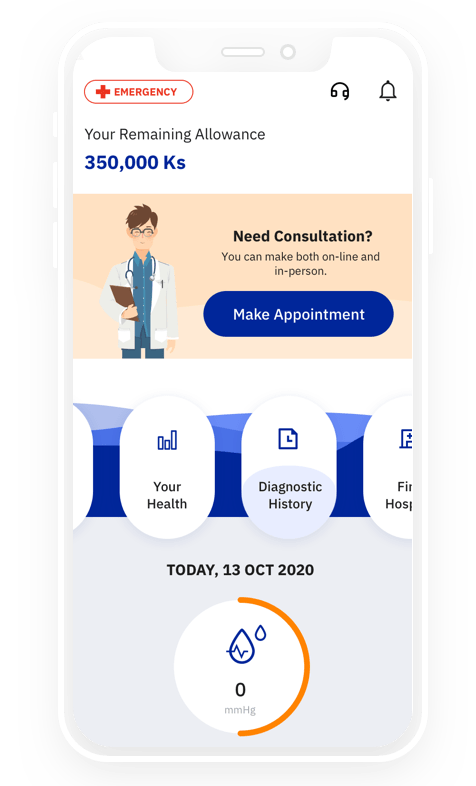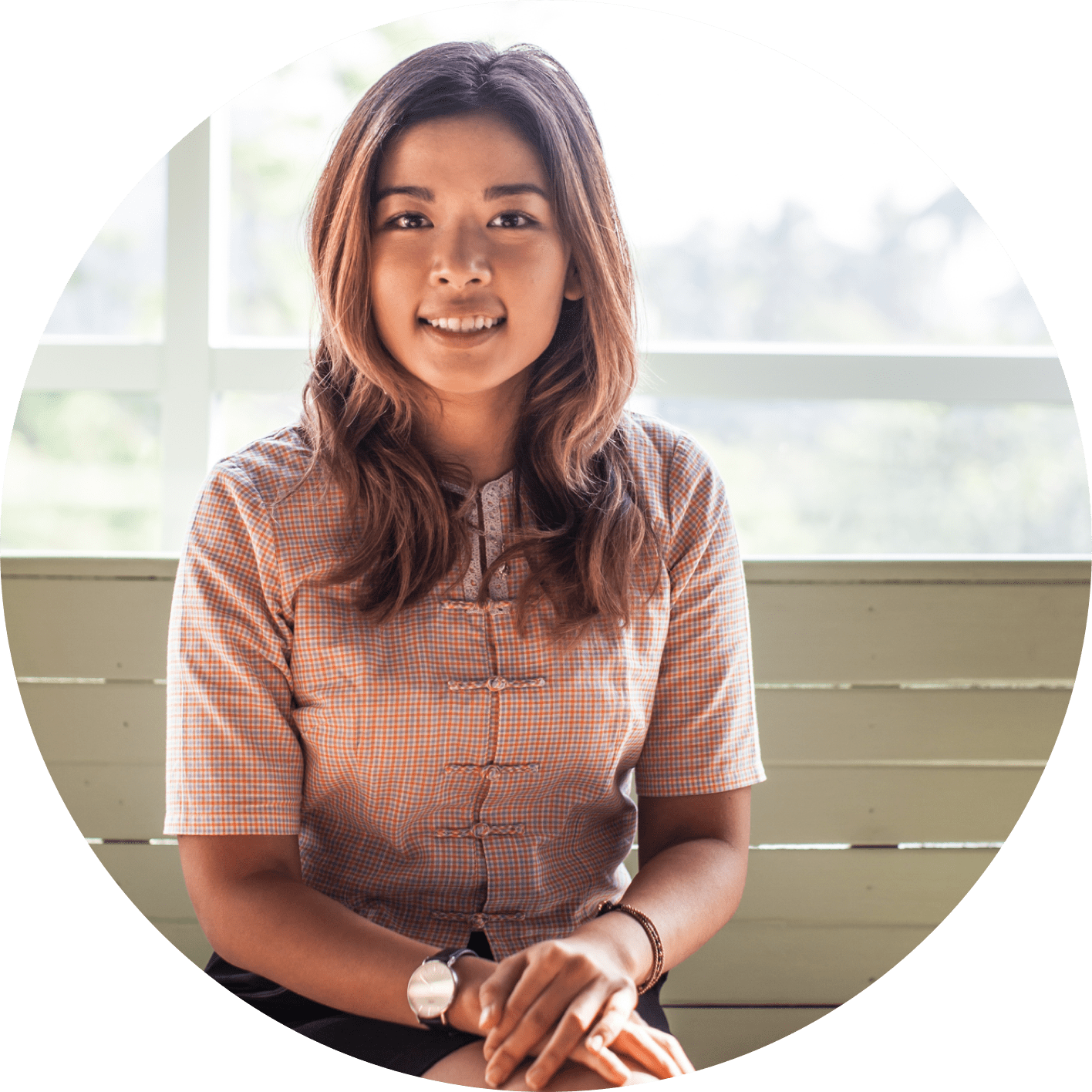
NgeOo Mon
Product Design LEAD
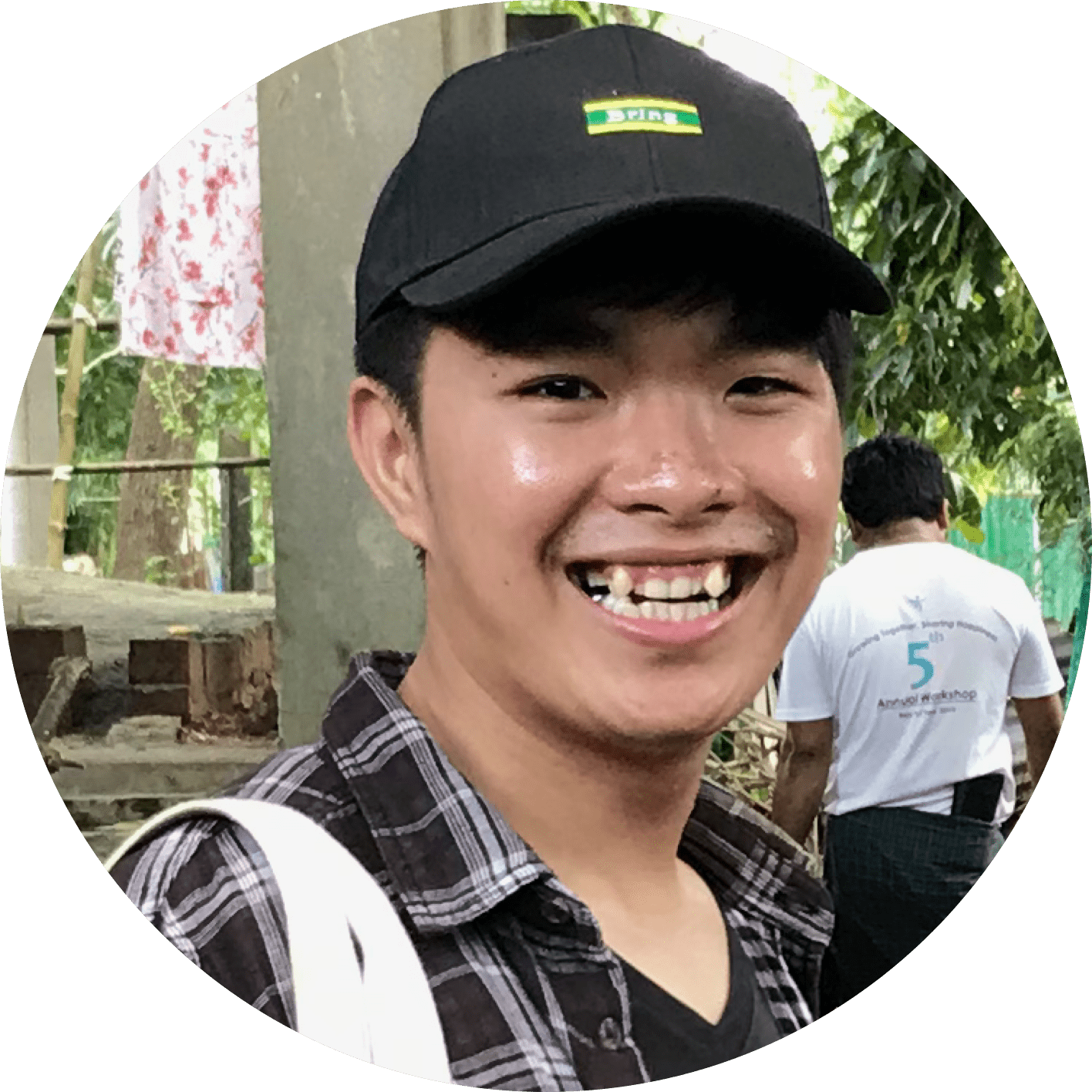
Yan Paing Hein
Product Designer
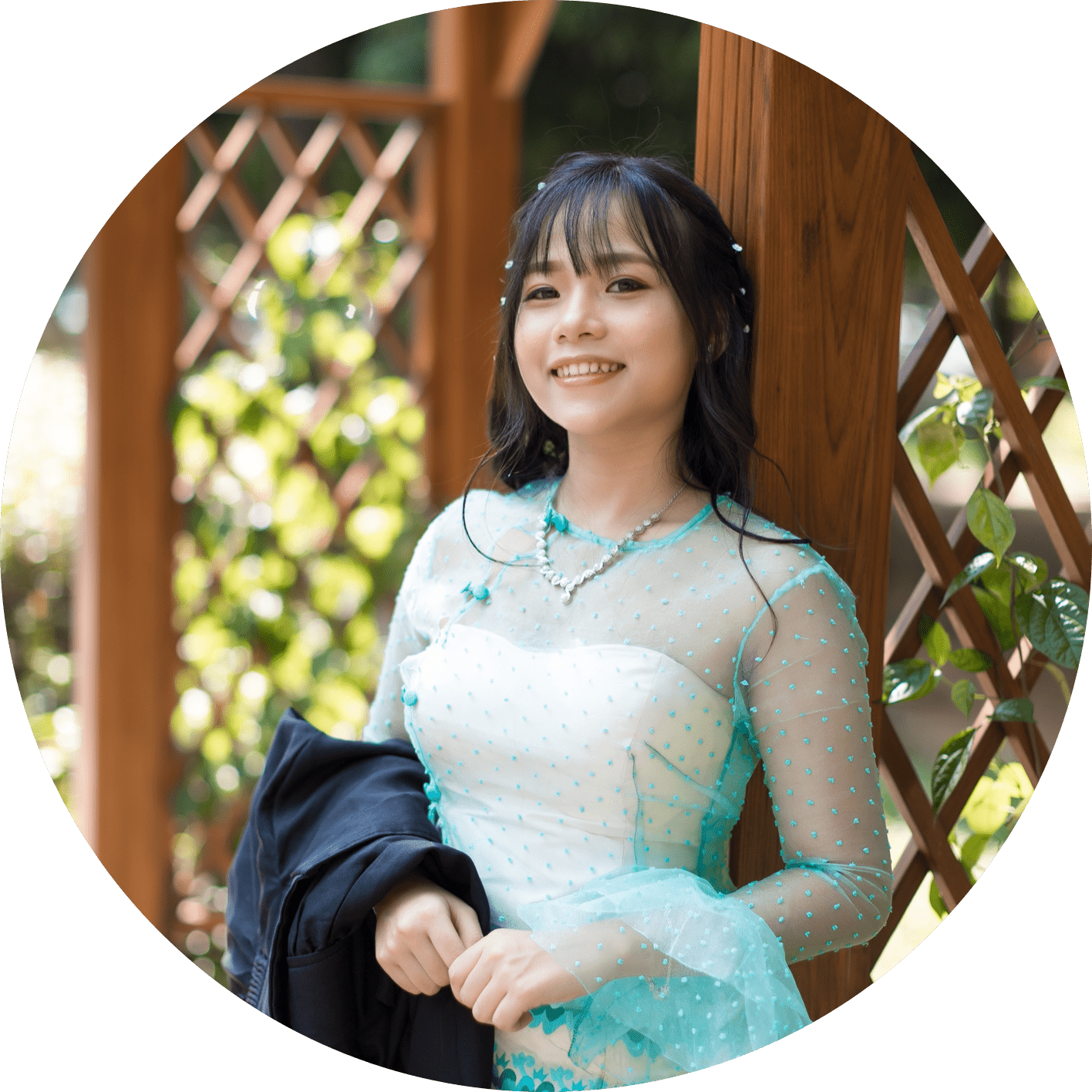
Aye Papa Myo
Product Designer
Project Goal
To redesign how Myanmar experiences health and well-being.
Problem Statement
Myanmar’s public health care has always ranked one of the lowest in the world. Many non-profit health care organizations or religious institutions step in to help the impoverished communities in the country to receive adequate health care.
In addition, due to lack of infrastructure in the rural areas, it further creates a larger gap in accessibility to receive health care even from the private hospitals such as Punhlaing Hospital. Thus, Punhlaing brought us in to tackle the main pain points for people in receiving basic healthcare and to design a better hospital experience for their staff and patients.
User Research
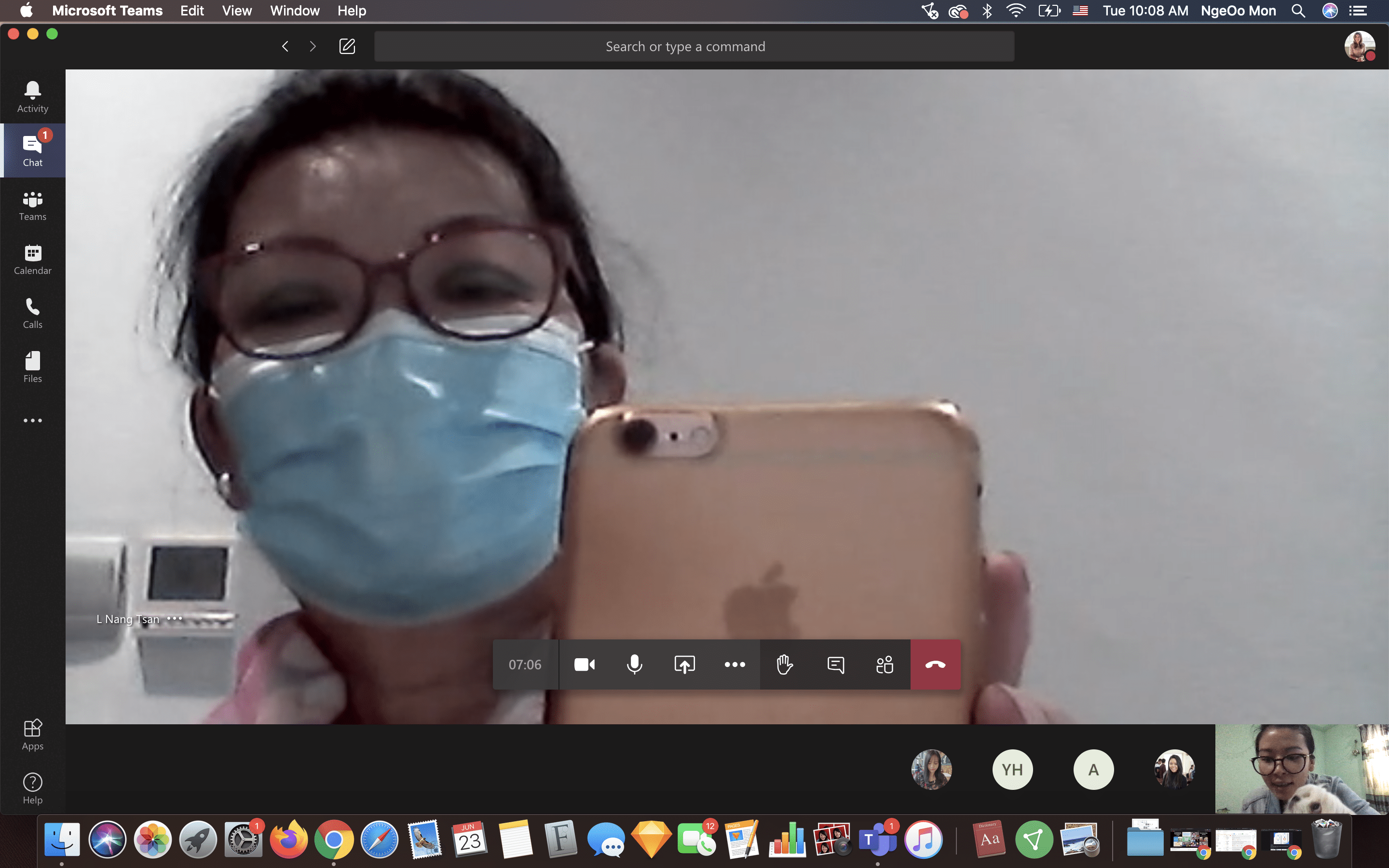
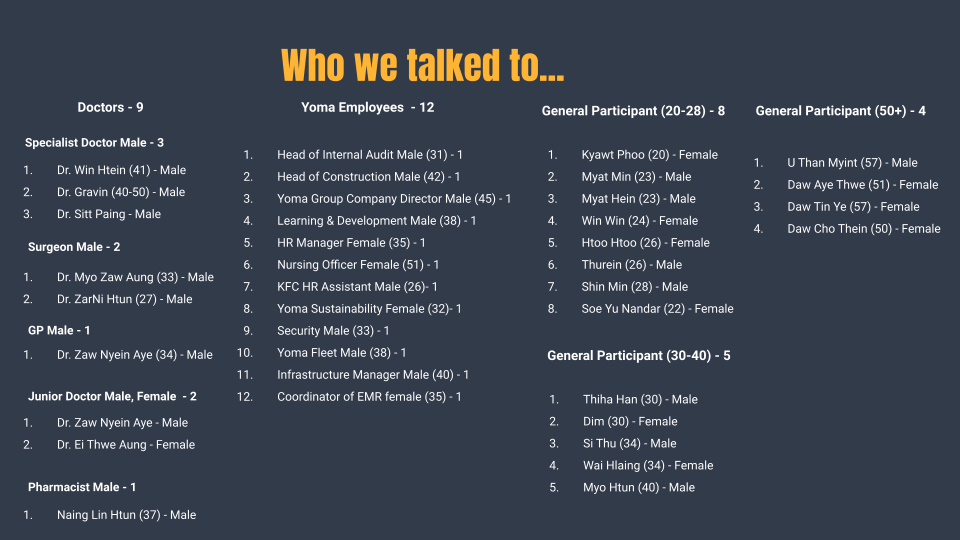
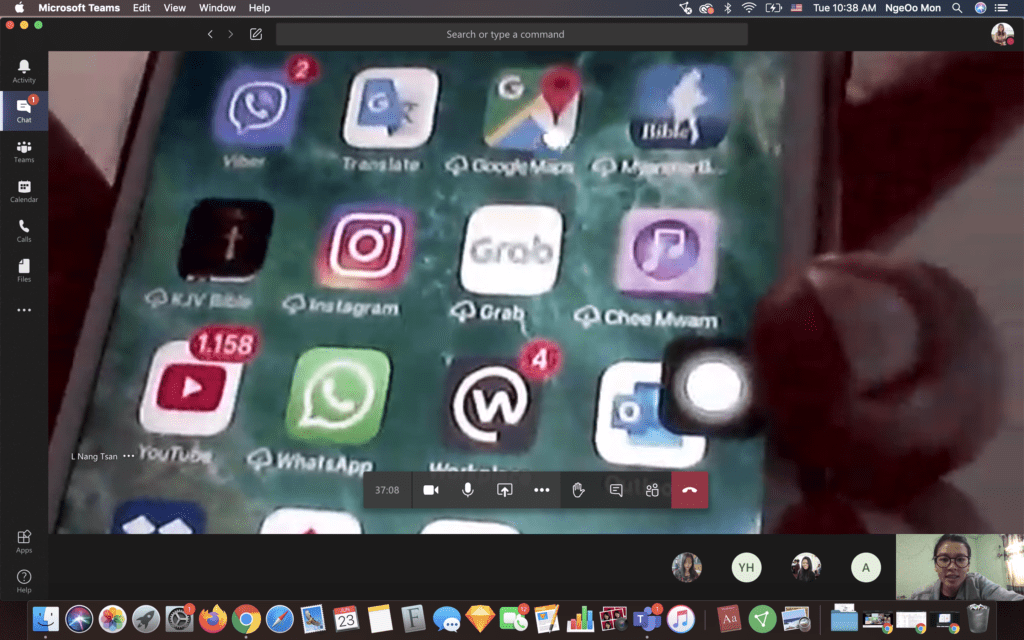
This was a pivotal moment of my design career because this project came to life during the outbreak of COVID-19 globally. There were a few adjustments I had to do in conducting one-on-one interviews. Which is to be aware of communication tactics and behavioral cues to receive the most accurate data as much as we can for the project digitally.
We invited the interviewees to our Microsoft Teams program and we talked to the candidates. As a result, we were able to design user personas, and study their workflows to find pain points and opportunities.
The candidates were selected by profession, age and vital role in the hospital ecosystem.
User Interview Participants
Medical (9 persons)
- Primary Care Physicians
- Specialists
- Jr. Doctors
- Pharmacists
Employees (12 persons)
- HR
- Nursing Officer
- Security
- Coordinator
- Receptionists
Patients (17 persons)
- M/F Age 20-28
- M/F Age 30-40
- M/F Age 50+
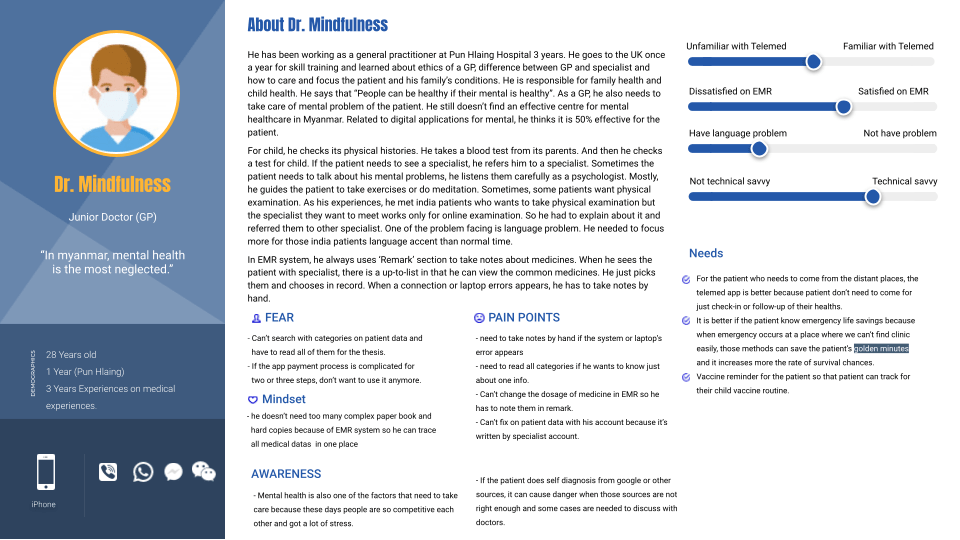
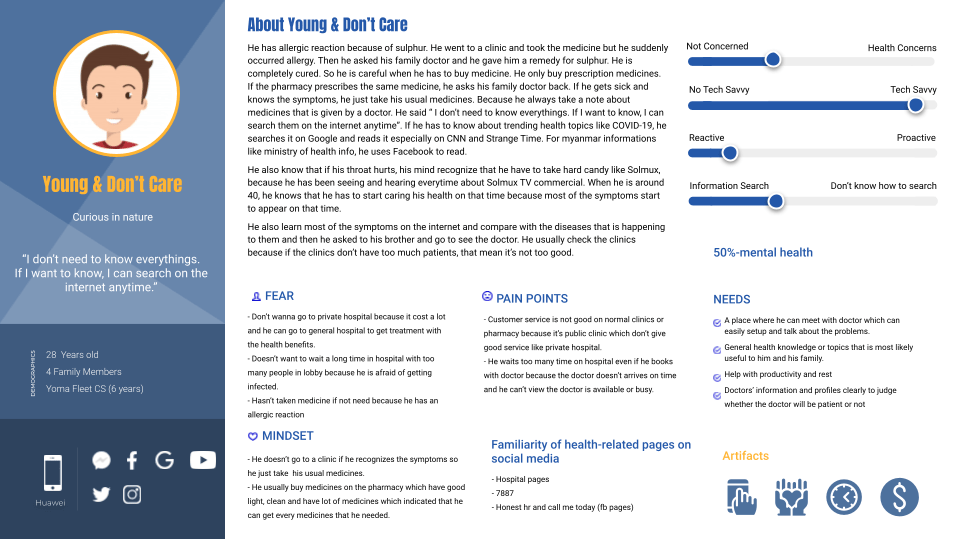
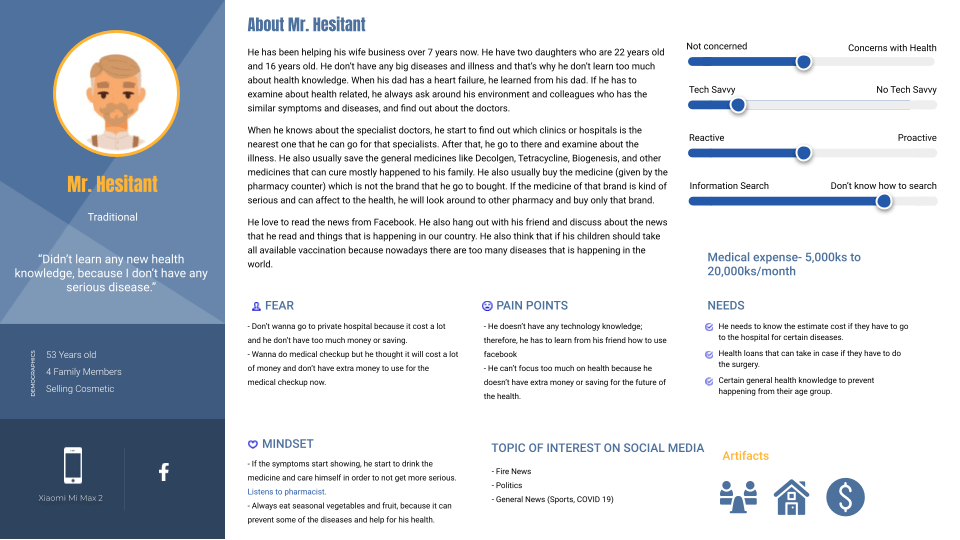
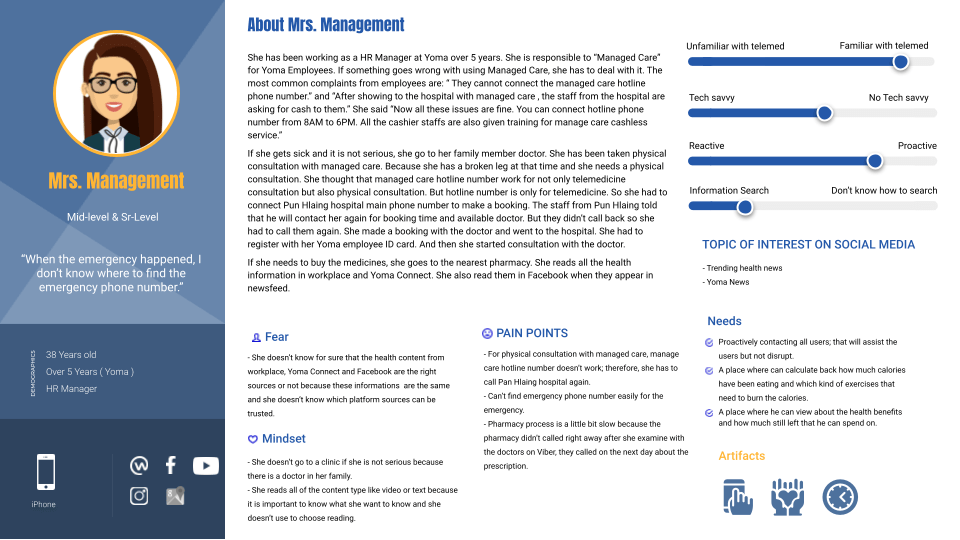
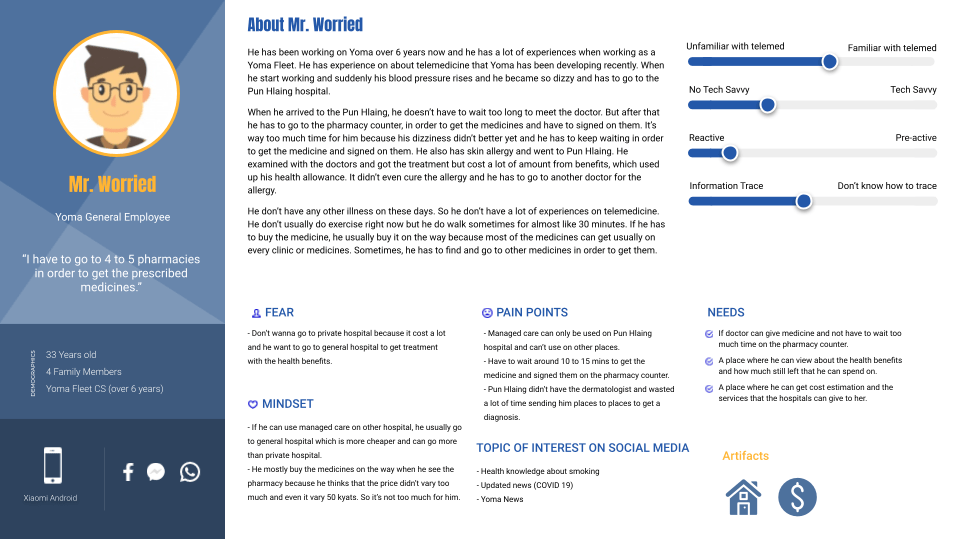
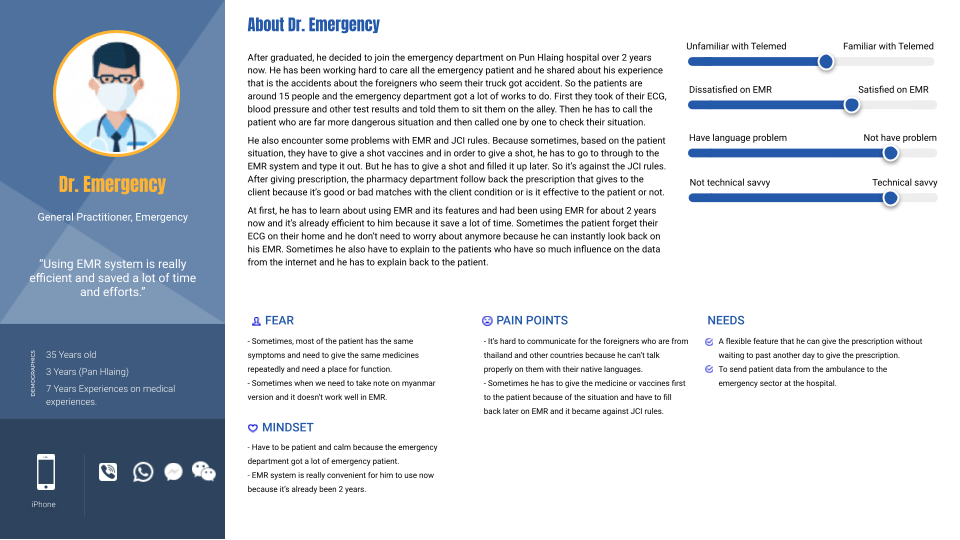
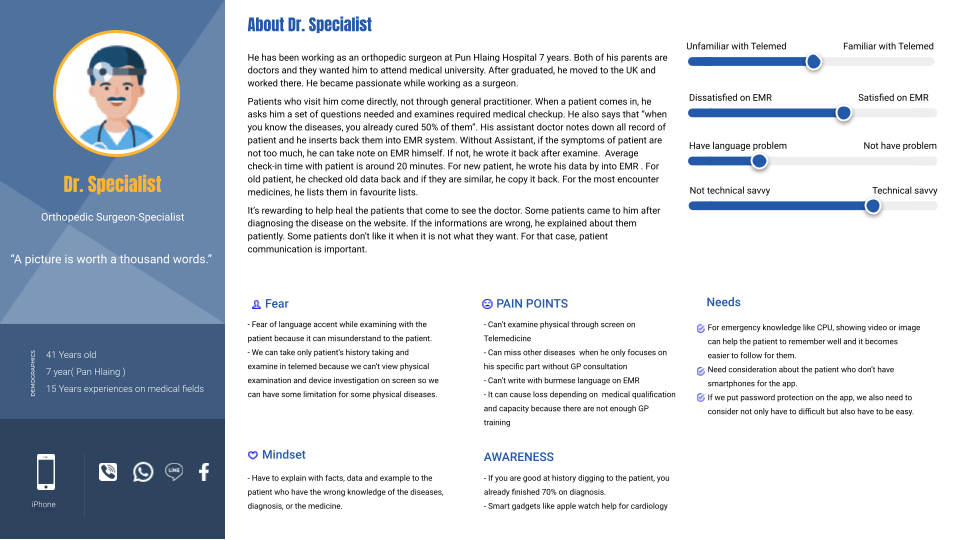
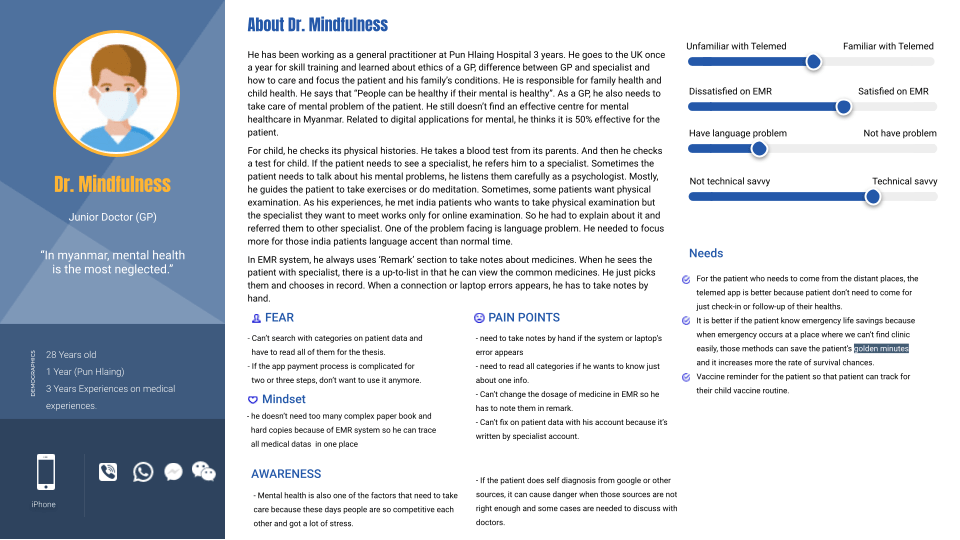
Important Insight: Patients' Visit to the Hospital
This data shows how most of the patients complete the task of receiving an appointment to see a doctor. The patients unanimously mentioned that the main reason for making a phone appointment was because the wait time without any advance appointment ranges from 2-3 hours and with an advanced appointment it takes about 30 minutes to 1 hour.
- How might we help patients make appointments in advance that fits their schedule
- How might we design a workflow that can help the receptionists better appoint availability of the doctors and patients in person
Finding Solutions
Pain Points ( Hospital Workflow )
This workflow allows us to see the touch-points of patients and doctors when meeting each other to accomplish their goals. We also uncovered the fears that the patient internalize and more challenges they face when receiving healthcare.
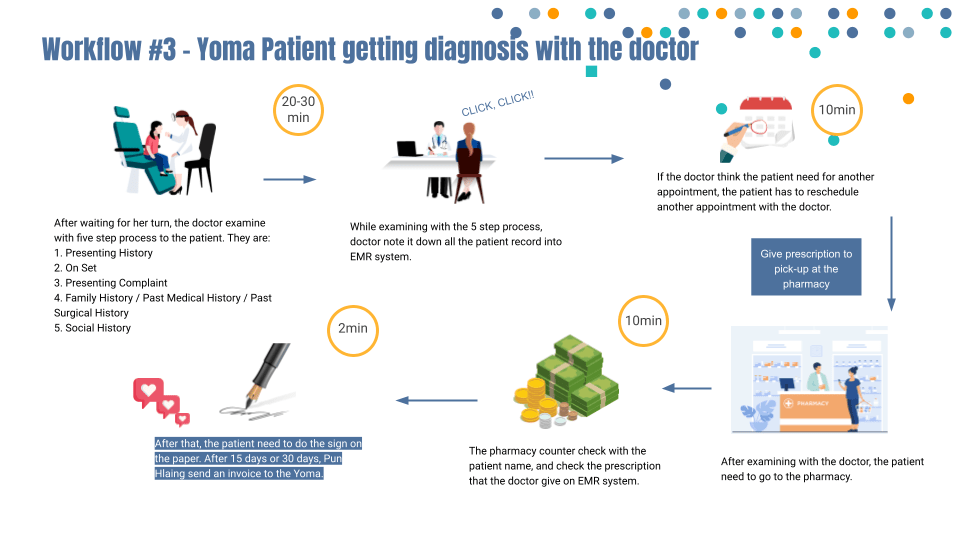
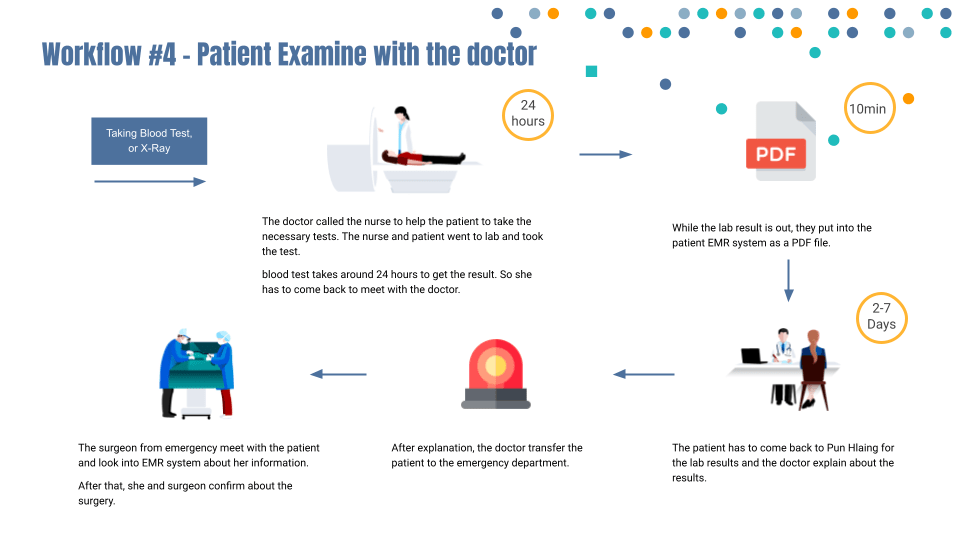
Outcome
Our team used Miro and white boarding methods after synthesizing the pain points and opportunity areas. We designed lo-fi wireframes to communicate to the stakeholders on how the solution can look like and function.
We concluded to design a desktop workflow management system for the doctors and hospital employees to manage appointments and patient data. At the same time, we proposed to design a mobile application where the patients can have easy access to making appointments and to their health data.
Furthermore, we factored in the COVID-19 situation, and that we believe medical virtual appointment should also be implemented in first screening patients. As a result, it saves time for both the patient and doctors to check-in without worrying about commute, money or time.
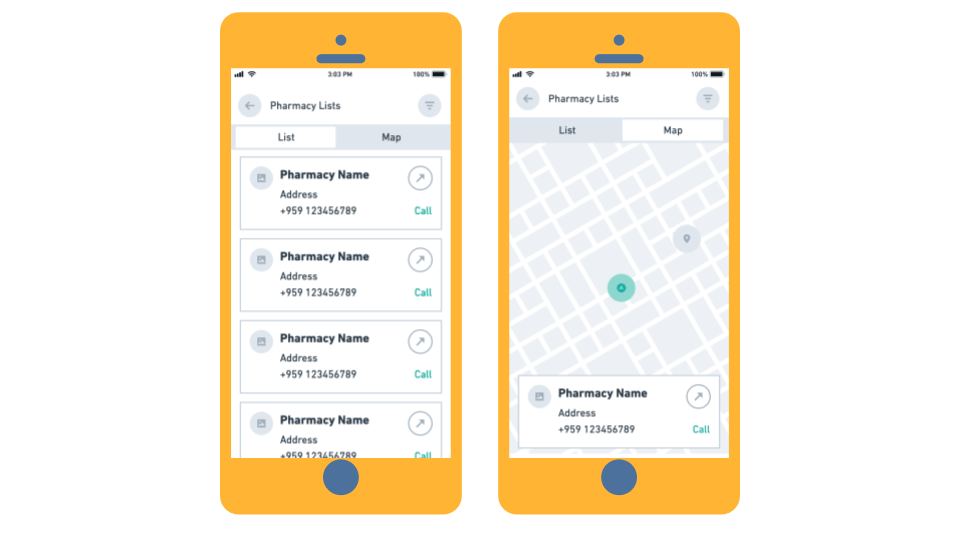
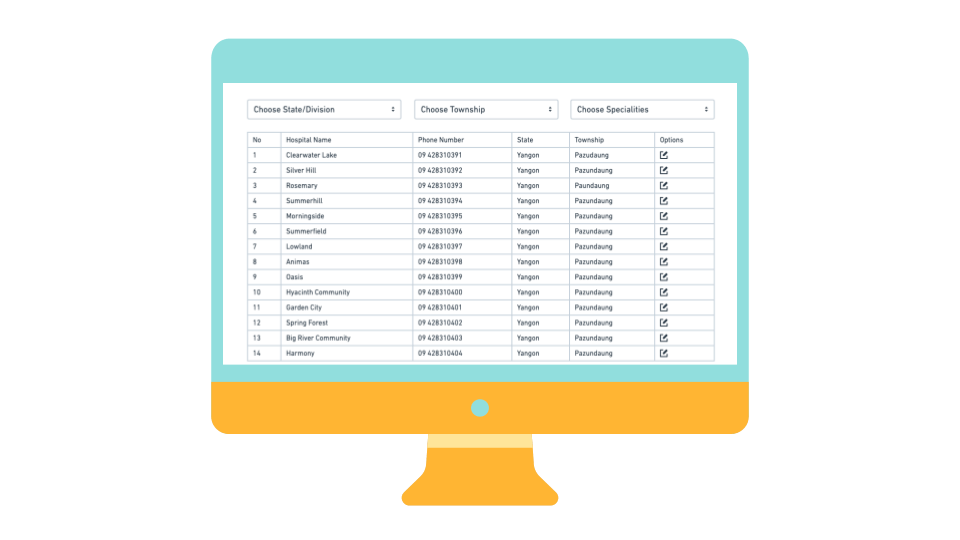
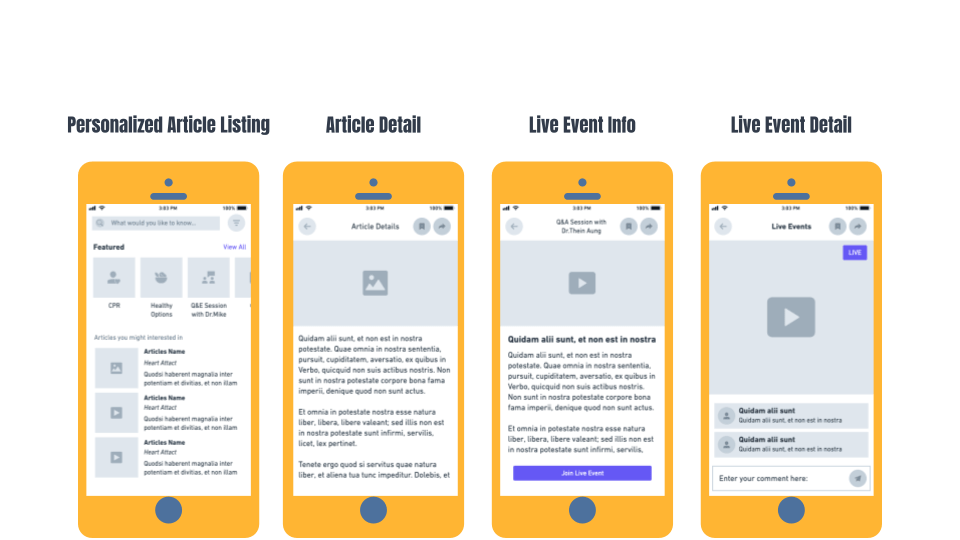
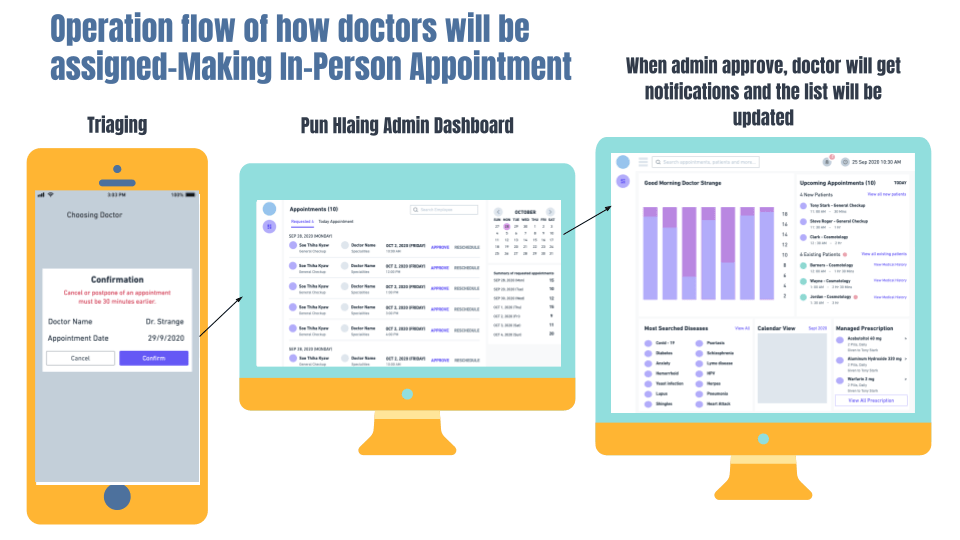
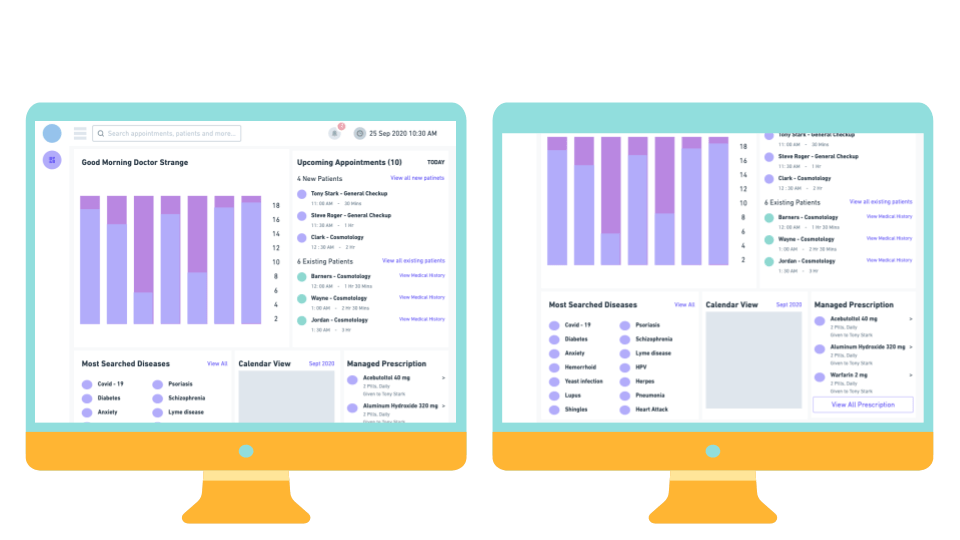
Punhlaing Health App
virtual appointments
Screening patients and general check-ins
smart health data
Patients can easily review health history and plan accordingly
order prescription
With Covid-19 outbreak, delivery service for medicine activated
Online payment
Able to obtain a wallet and make easy payments without extra fees
More Projects
Recycle Myanmar
User Experience: UX Research and Wireframing
Tools: Sketch, AI, Photoshop
